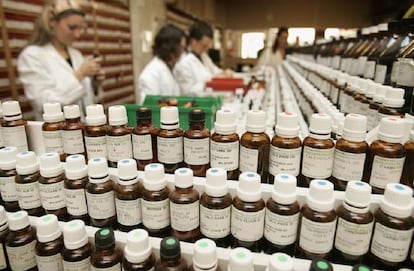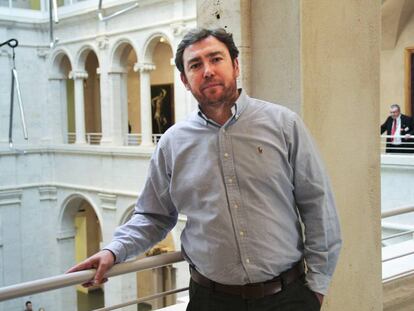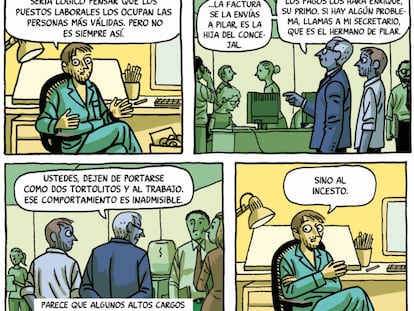More than half of Spaniards continue to believe that homeopathy works
City-based women with center-left political beliefs most likely to trust unproven form of remedy
In the latest biannual survey carried out by the Spanish Foundation for Science and Technology (Fecyt) on popular perceptions of science in the country, 6,300 Spaniards were asked if they agreed with the statement: “Homeopathic products work.”

Despite the lack of scientific evidence to support their curative properties, more than half of all people in Spain polled believe these remedies can make a difference. And the 52.7% who are most convinced by homeopathy are the most educated section of society.
But it is city-based women with center-left political beliefs who put most faith in this branch of alternative medicine while those in business and who hold “other religious beliefs” agree that it can be useful.
Pseudoscience is dangerous. We need to be much stricter with this sort of thing José Ignacio Fernández Vera, Fecyt director
“Pseudoscience is dangerous,” says the Director General of Fecyt, José Ignacio Fernández Vera, who believes that the authorities should do something to correct what he believes to be misconceptions. “We need to be much stricter with this type of thing. They are just placebos.”
“Some of the [poll] data was unexpected,” says the secretary of state for R&D, Carmen Vela, who draws attention to the fact that women’s interest in science has increased over the years since 2002 when Fecyt began to carry out its biannual surveys.
Known as Social Perceptions of Science survey, this is the eighth study carried out by the foundation linked to the Economy Ministry.
The last study, carried out in 2014, showed that 50% of Spaniards believed that homeopathic remedies had a scientific basis of some kind, indicating that little has changed over the past two years in this respect.
Homeopathic remedies can be bought in pharmacies in Spain and are often recommended by pharmacists themselves, which possibly contributes to the trust people place in them.
According to a report by the Health Ministry, however: “In general, the investigations carried out conclude that homeopathy has failed to prove its effectiveness.”
The study also found 83.9% of Spaniards strongly distrust horoscopes
In terms of other findings, the latest Fecyt survey revealed that Spaniards believe science in general has more beneficial than detrimental effects, but there were four cases in which most people believed the reverse to be true: nuclear energy (43.1%), the cultivation of genetically modified crops (33.4%), cloning (31.3%) and fracking (27%).
Interestingly, the number objecting to these four scientific activities has fallen substantially since 2014 with approval for transgenic crops rising from 17.3% to 22.8%.
This is also the first year that the study has included questions about Spaniards’ beliefs in the paranormal and pseudoscientific practices besides homeopathy, revealing that 83.9% of Spaniards strongly distrust horoscopes, 76.7% are very skeptical about paranormal phenomena, 76.3% have no faith in healers and 71.3% do not believe in lucky numbers or charms.
Does the Sun revolve around the Earth?
The most recent edition of the biannual Social Perceptions of Science survey was particularly noteworthy for the fact that a quarter of Spaniards mistakenly believed that the Sun revolves around the Earth. Some specialists suggested that rather than ignorance, the reason for the answer lay in how the question was posed. Rather than asking simply if the Sun revolved around the Earth, informants were asked if they believed that it was true or not. This year, respondents were given two choices, true or false, leaving them to decide. As a result, the number of Spaniards who believe the Sun revolves around the Earth fell from 2015’s 27.5% to 11.7%
In general, the survey suggests that Spaniards’ understanding of science is improving: the average score out of 10 this time was 7.66, up from the 6.39 in 2014 and the 5.09 in 2006. At the same time, 44.2% of those quizzed in the survey admitted that they were lacking in scientific knowledge, down from the 47.1% in 2014. Young people aged between 15 and 24 said they were better informed about science; with only 29.9% saying their level was low or very low.
English version by Heather Galloway.










































